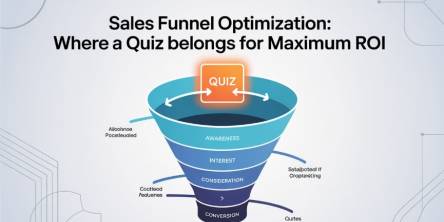The Role of AI in Personalized Treatment Plans

The introduction of Artificial intelligence (AI) healthcare has caused a radical change in the way that medical care is provided. It gains paramount importance when it comes to customised treatment regimens.
AI's capacity to evaluate enormous volumes of data, spot trends, and offer forecast insights is opening the door for more accurate and successful healthcare treatments as medicine moves towards a more personalised approach. Platforms like Canvas are contributing to this shift by supporting clinicians with streamlined data workflows and intelligent care tools.
The importance of AI in creating individualized treatment regimens is examined in this article, along with how it is transforming patient care in light of the growing need for generative AI in medicine.
Personalized medicine: What is it?
Precision medicine, another name for personalised medicine, is a branch of medicine that customises care for each patient according to their unique genetic composition, and medical problems.
Personalised therapy, as opposed to the conventional one-size-fits-all approach, takes into account each patient's particular features in order to maximise therapeutic response and reduce hazards. Scientific advancements in genomics, medicine, and, more recently, AI technologies, have made this paradigm change in healthcare conceivable.
AI's Place in Customised Treatment Programs
By improving the capacity to gather, handle, and analyse complicated datasets from multiple sources, artificial intelligence is enabling personalised healthcare. These data-driven insights assist medical professionals in creating very customised treatment programs that address the unique requirements of every patient.
It is easy to understand the value of AI in customised treatment programs with the help of the following concepts:
- Data Analysis and Integration
Artificial Intelligence is highly proficient at handling large volumes of data from many sources, such as genetic data, wearable technology, medical records, and diagnostic testing. AI is able to find patterns in this data that might not be immediately noticeable to medical personnel.
In order to assist clinicians in customising treatment choices to each patient's unique genetic profile, machine learning algorithms, for example, can identify connections between a patient's genetic predispositions and how they respond to various drugs.
- Generative AI for Optimizing Treatment
By regularly assessing how patients are responding to treatments, generative AI in healthcare is becoming a potent instrument for improving treatment regimens. Algorithms using generative artificial intelligence (AI) can assess real-time data on a patient's response to medicine or therapy and recommend changes based on those findings.
AI, for instance, may evaluate patient biomarkers and tumour growth in cancer treatment to optimise radiation or chemotherapy doses, minimising adverse effects and enhancing therapeutic effectiveness.
Obstacles and Things to Think About
The integration of AI into individualised treatment programs presents several difficulties despite its potential. The ethical worries about patient privacy and data security are a significant obstacle. Large volumes of private health data must be accessed by AI systems, which raises concerns regarding permission and the possibility of data breaches.
Additionally, physicians may find it challenging to comprehend or confirm the suggestions generated by AI algorithms, which may make them reluctant to implement AI-driven judgements. Furthermore, disparities in treatment outcomes for various demographic groups may result from biases in the data utilised to train AI algorithms.
Case Studies: Artificial Intelligence in Practice
A number of real-world instances for generative AI healthcare demonstrate how AI is being utilised to improve individualised treatment regimens:
- Medication for Cancer
In order to provide cancer patients with individualised therapy recommendations, AI systems such as IBM Watson for Oncology evaluate patient data, research articles, and clinical trial outcomes. Watson is able to recommend the most appropriate course of treatment for each patient by taking genetic indicators into account.
- Diabetes Management
Predictive models for patients with type 1 diabetes are being developed by AI-driven systems, including Google's DeepMind. Because these models forecast blood glucose levels, more precise insulin dosage recommendations that take into account each patient's unique lifestyle and metabolic response are possible.
Ending Note
AI is definitely influencing the future of personalised medicine by helping healthcare practitioners to develop more accurate and customised treatment regimens. This is especially true for generative AI in medicine.
AI is becoming increasingly important in ensuring that patient care is customised to their individual needs for therapy optimization and medication discovery. As technology develops further, it has the potential to transform healthcare by enhancing results.
In the end, it provides more efficient and customised therapies while also improving the patient experience.
Similar Articles
We live in the age of cloud computing. That's plain to see. However, what may escape many are the operational and financial challenges of managing multiple independent clusters.
Times have changed and how! Take modern technology and the fast-paced digital economy, it is driving. Given the market conditions, any company's infrastructure has become more than just a technical detail.
It has been for everyone to see that the modern digital economy is distinguished by high volume, real-time financial transactions.
Business success has become reliant on efficiency and agility of the underlying technology infrastructure. Clearly, companies now depend on cloud computing to provide seamless services while managing exponential data growth.
Hospitals operate in environments where availability and patient safety are paramount at all times. As medical supply chains expand and regulatory oversight becomes more demanding, manual tracking methods introduce delays and risk.
Every sales funnel has one core goal: turn attention into revenue as efficiently as possible. Yet many funnels leak value at critical stages—visitors bounce, leads go cold, and sales teams chase prospects who were never a good fit.
Decentralized Finance (DeFi) has transformed how users earn passive income through blockchain-based financial systems. Among its most popular use cases,
Staying organized can feel like a full-time job. Between meetings, deadlines, and personal commitments, it’s easy to get overwhelmed.
Choosing the right GIS mapping software depends on what you need to accomplish. Some platforms cater to developers who want to build custom applications from scratch.









